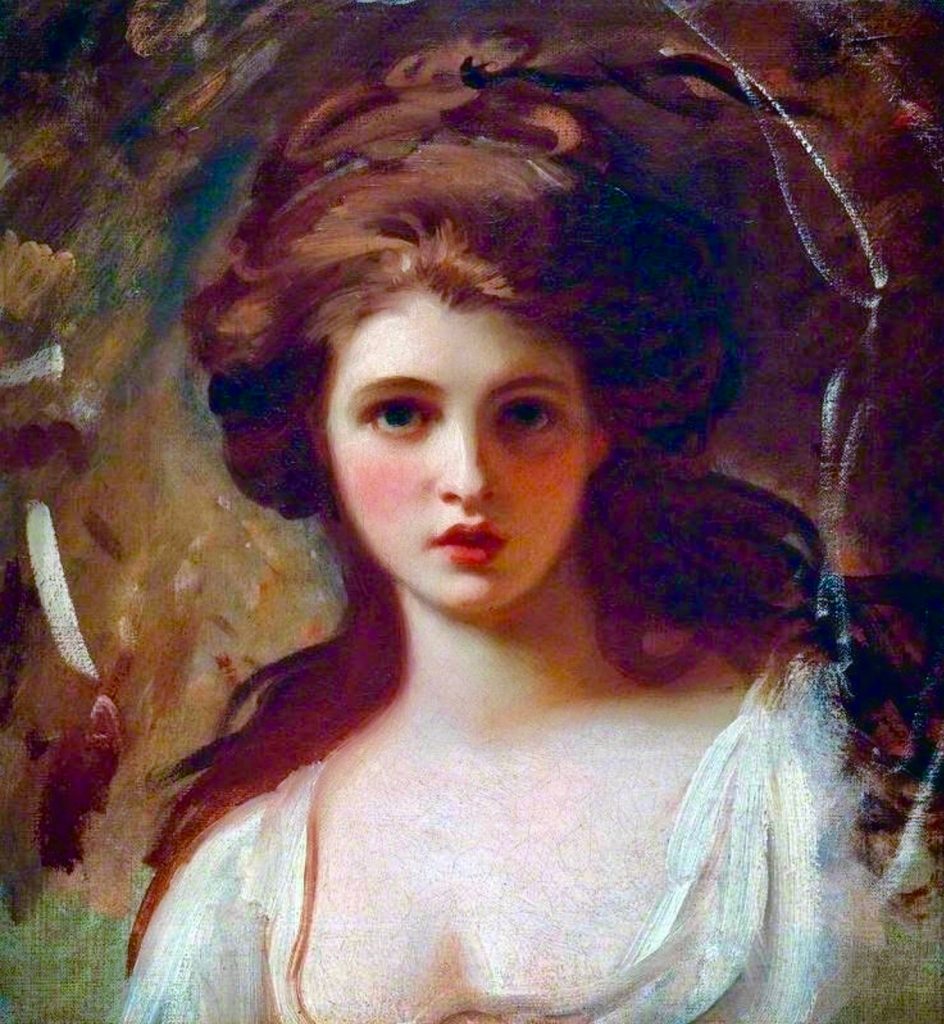Abraham Gibbs, Admiral Nelson and smallpox vaccine
The Guardian newspaper has a very topical Valentines Day love story “Nelson urged mistress to give their baby girl ‘new’ smallpox vaccine“. It recounts that the “chance discovery” of a 220-year-old love letter from Admiral Horatio Nelson to Lady Emma Hamilton, his mistress, reveals how open-minded and ahead of his time the formidable captain was about a radical new scientific breakthrough: the smallpox vaccine. In the letter, dated July 1801, Nelson appears to advocate the use of the brand new vaccine on his own baby daughter. Edward Jenner had only published his trailblazing paper proving that people infected with cowpox were protected from the deadly disease of smallpox three years earlier, in 1798.
The article continues … It is clear from the correspondence that the embattled 42-year-old admiral worshipped his 36-year-old lover, a married woman whose other admirers included the Prince of Wales … Hamilton, he says, felt the same. “She didn’t have a child with her husband, then fell pregnant in her mid- 30s. This is emphatically a love child, and Nelson is a doting father.”
The relationship between Abraham Gibbs of Naples and Palermo, descended from the Topsham Gibbs, and Lord Nelson and Emma Hamilton is recounted in John Arthur Gibbs 1922 “History of Antony and Dorothea Gibbs”, and more recently in David Hogg’s “Diaries of Tyntesfield” and in Elizabeth Neill’s “Fragile Fortunes, the Origins of a Great British Merchant Family”.
In the 1780s Naples was a thriving city and foreigners on the Grand Tour were flocking there to see the excavations at Pompeii and Herculaneum. Sir William Hamilton, the British ambassador entertained lavishly at the Palazzo Sessa. At the age of 29 Abraham Gibbs became engaged to Mary Elizabeth Douglas, the youngest daughter of Sir James Douglas, the British Consul General in Naples. In 1790, they were married in the British Embassy in Naples. In 1791, Sir William Hamilton at the age of 58 married the 26 year old Emma Hart.

Abraham had become prosperous through his marriage and started a thriving business as a merchant. In October 1793 Abraham and Mary had a daughter called Anna Maria. Emma Hamilton longed to have a child and doted on little Anna Maria. In March 1797 sadly Abraham’s wife Mary died leaving him a widower with a three year old daughter.
In August 1798 Nelson defeated the French at the Battle of the Nile in the Bay of Aboukir. In September his triumphant Fleet arrived in Naples and the Hamiltons arranged a huge party to celebrate Nelson’s fortieth birthday. King Ferdinand of Naples had unwisely launched a disastrous campaign to recapture Rome. His army was driven back by the French who now threatened Naples. Nelson’s fleet evacuated the Royal Family, the Hamiltons and other prominent personages to Palermo. Sir William Hamilton established his ambassadorial residence in the Pallazzo Palagonia. Nelson, Abraham Gibbs and Edmund Noble and family took up residence as paying guests. It is here that Nelson and Emma Hamilton became lovers.
Emma adored having children around her and was particularly fond of the motherless Ana Maria, whom she called Mary. In an effort to try to persuade Nelson to stay in Sicily King Ferdinand and Queen Maria Carolina made gifts of jewellery and diamonds to Emma Hamilton and Horatio Nelson. Nelson became the Duke of Bronte with an estate of 40,000 acres on the western slopes of Mount Etna. Nelson was given a diamond encrusted sword.
In 1803, having received no news or income from Bronte, Nelson wrote to Abraham Gibbs asking him to visit Bronte and look after his affairs there. Abraham was about to go to England with his daughter Mary. Nelson agreed to take Mary to England on board H.M.S. Vanguard. At the end of November 1803 Mary, who was nine years old, left Palermo to join Nelson on the Vanguard for her journey to England. On board she quickly made friends with the young midshipmen who were all her own age. In Christmas Week 1803, Nelson entertained five young guests and noted that one of them was not three feet high, and that all the Grandees dined with Campbell, and I had a midshipman’s party.
Arriving in England Mary was put into the care of Emma Hamilton at Merton, the House, which Nelson had purchased for them three years previoulsy.
Arriving in Lisbon at the beginning of October 1798, Antony Gibbs was met with the good news of Nelson’s victory at the Battle of the Nile on August 1st. On November 1st, Antony wrote to his wife to say that two of Nelson’s ships of the line had come into Lisbon with five of the nine prizes taken in the battle. Antony had dined with the two British captains on board ship.
It was Britain’s command of the sea, which enabled Antony Gibbs and Sons to venture into Latin America. Indeed several of Nelson’s captains at Trafalgar would play key roles.
Regrettably though Abraham had a prosperous and influential existence in Italy, his life did not end well and in 1816 he took his own life in his house in Palermo, supposedly because his management of Nelson’s estate and investments in Sicily had gone badly wrong. Christopher Gibbs had told me that he had acquired Abraham’s original suicide note.
My thanks to David Hogg for his contributions to this story.

Comments
Abraham Gibbs, Admiral Nelson and smallpox vaccine — No Comments
HTML tags allowed in your comment: <a href="" title=""> <abbr title=""> <acronym title=""> <b> <blockquote cite=""> <cite> <code> <del datetime=""> <em> <i> <q cite=""> <s> <strike> <strong>